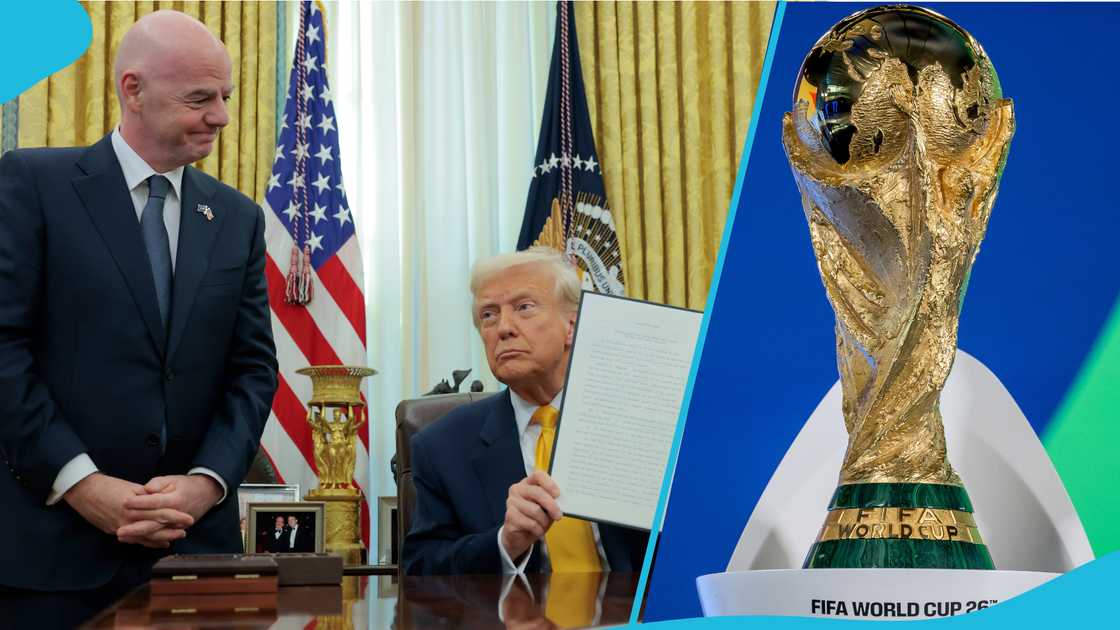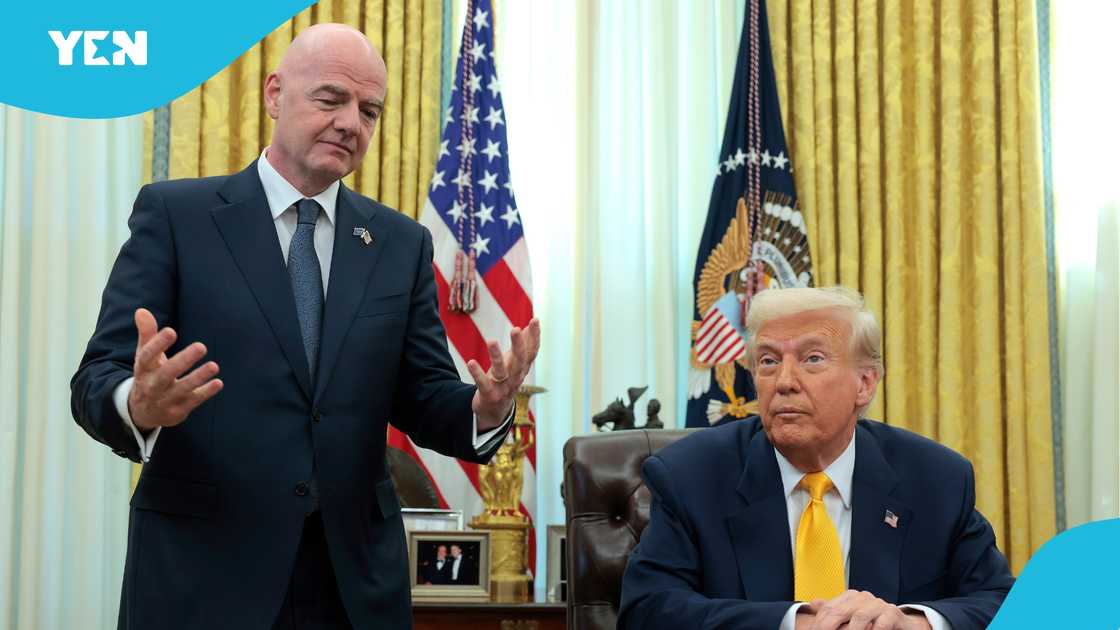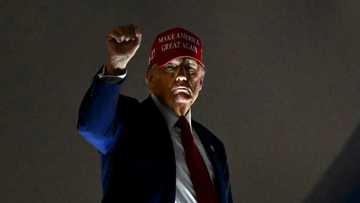Donald Trump’s Tariff Policy Puts 2026 World Cup in Jeopardy
- The 2026 World Cup is facing uncertainty as Donald Trump’s new trade tariffs spark international backlash and concerns among global sponsors
- Major brands are reportedly re-evaluating their involvement, worried that rising costs and limited access to U.S. markets could affect their World Cup investments
- With Trump taking a lead role in a new World Cup task force, questions are mounting about how his policies will shape the tournament's commercial success
Don't miss out! Get your daily dose of sports news straight to your phone. Join YEN's Sports News channel on WhatsApp now!
The upcoming 2026 FIFA World Cup, set to be jointly hosted by the United States, Mexico, and Canada, has been thrown into turmoil following former U.S. President Donald Trump’s latest policy shift.
The tournament, which will make history as the first to feature 48 teams and be hosted by three nations, now faces unexpected challenges due to a sweeping set of tariffs recently announced by Trump.

Source: Getty Images
These tariffs are poised to significantly impact international trade and sponsorships, particularly for brands eager to capitalize on the massive global stage that the World Cup provides.
Trump’s announcement, made on April 2—a date he controversially labeled “Liberation Day”—includes steep 25% tariffs on goods from neighboring Canada and Mexico.
He also introduced additional tariffs targeting dozens of other countries, including the UK, Australia, India (26%), Vietnam (46%), and China (34%).
Trump throws 2026 World Cup into chaos
A blanket 10% tariff will now apply to many other trading partners, as Trump looks to “level the playing field” and promote domestic manufacturing.
This aggressive move could have major implications for international brands planning World Cup sponsorships and marketing campaigns within the U.S.
“I suspect some sponsors are now re-assessing how they 'activate' such deals in the US, given the trade barriers that have now been imposed,” sports bid strategist John Zerafa told the BBC. “Why would a sponsor spend millions of pounds doing so if it is now prohibitive to sell in America?”

Source: Getty Images
Sponsors like Hyundai-Kia, Aramco, Lenovo, and Qatar Airways—companies that rely heavily on global trade—are among those who could be hit hardest.
With the U.S. as the primary host, and 11 major stadiums including MetLife Stadium set to welcome the world, there are now growing concerns that Trump's economic policies could reduce the commercial appeal and logistical ease of the event.
Despite the controversy, Trump has taken direct control by forming and leading a dedicated World Cup taskforce.
In a statement from the White House, he described the tournament as an “opportunity to showcase the Nation’s pride and hospitality while promoting economic growth and tourism through sport.”
However, with sponsors potentially pulling back and international trade strained, the real-world effects of his decision may cast a long shadow over what was meant to be a landmark celebration of global football.
Black Stars top Group I in WCQ
Ghana's Black Stars currently top Group I in the CAF qualifiers for the 2026 FIFA World Cup with 15 points from six matches.
Their recent 5-0 victory against Chad, and 3-0 victory over Madagascar, solidified their position at the top.
However, the group remains competitive, with Madagascar trailing by five points, with Mali and Comoros further behind but trailing by six points.
With four matches remaining, Ghana's path to qualification is promising but they will have to remain consistent with their performance.
Trump’s travel ban and its impact on the World Cup
According to a report from the New York Times on March 14, the Trump administration is considering restricting travel for citizens from up to 43 countries, including some with national teams currently vying for a place in the World Cup.
Iran, which has already secured qualification, is reportedly included in a draft list of banned nations.
The proposal categorises affected countries into three sections: Red (Full travel ban), Orange (Severe visa restrictions), Yellow (A 60-day period to address concerns before restrictions take effect).
Iran is reportedly listed under the "red" category, which would make travel to the U.S. impossible for its team, potentially preventing them from competing in the tournament.
FIFA threatens to ban African country
YEN.com.gh earlier reported that FIFA has warned an African nation that it could face suspension from international football and the 2026 World Cup due to government interference.
The football governing body issued an official letter, emphasising the need for the country’s football association to operate independently.
Nomso Obiajuru was a contributing writer in this article
New feature: Сheck out news that is picked for YOU ➡️ click on “Recommended for you” and enjoy!
Source: YEN.com.gh





